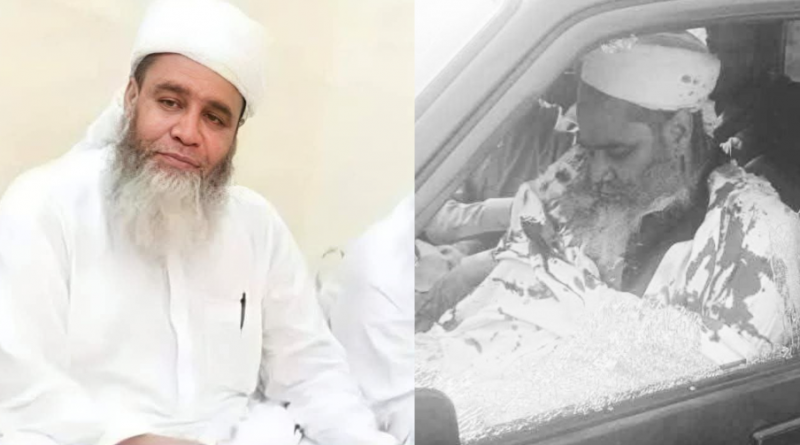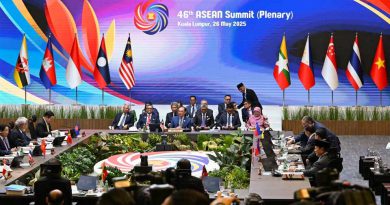Top Deobandi Cleric Shot Dead in Pakistan, ISI Role Suspected to Provoke Taliban
Islamabad – Pakistan’s intelligence agency, the Inter-Services Intelligence (ISI), has been accused of orchestrating the assassination of senior Deobandi cleric Hafiz Abdul Salam Arif through operatives of the Islamic State Khorasan Province (ISKP) in what is being described as a calculated attempt to provoke Afghanistan’s Taliban government.
According to reports, Hafiz Abdul Salam Arif, a prominent leader of the Jamiat Ulema-e-Islam (JUI) party, was shot dead by “unidentified gunmen” late Tuesday in the Mandani area of Charsadda, located in Pakistan’s Khyber Pakhtunkhwa (KPK) province. Arif, a respected religious scholar and senior member of JUI, was known for his influence among Deobandi circles in Pakistan’s northwest.
The JUI, led by Maulana Fazal-ur-Rehman, is one of Pakistan’s major political parties—holding the fourth largest number of seats in the Senate and the fifth largest in the National Assembly. Fazal-ur-Rehman has long been a vocal critic of Pakistan’s military and intelligence establishment, particularly over its policies toward Afghanistan.
Sources familiar with the matter claim that all indications point to the involvement of the Islamic State Khorasan Province (ISKP), an Afghanistan-based affiliate of ISIS. The group adheres to a hardline Salafi-Ikhwani ideology, which stands in ideological opposition to the Deobandi school of thought followed by Afghanistan’s ruling Taliban regime.
Both ideologies belong to the Sunni branch of Islam, yet they have long been bitter rivals, often clashing over theological and political control in the region.
Intelligence assessments suggest that, as relations between Islamabad and the Taliban have deteriorated in recent months, the Punjabi Muslim–dominated ISI may have sought to exploit this sectarian and ideological divide.
According to these assessments, ISI has orchestrated a tactical alliance between ISKP and Pakistan-based militant outfit Lashkar-e-Taiba (LeT) to jointly target anti-Pakistan elements in Khyber Pakhtunkhwa, Balochistan, and India’s Kashmir Valley.
Analysts believe the plan serves multiple objectives: to destabilize Afghanistan’s Taliban government, to provoke India amid renewed tensions in Kashmir, and to suppress Baloch insurgents in Pakistan’s volatile southwest.
The targeted killing of a Deobandi cleric such as Arif, observers say, directly strikes at the religious and ideological foundation of the Taliban, for whom the Deobandi school remains sacred.
The ISI’s Punjabi Muslim leadership, which dominates Pakistan’s military, intelligence, and civilian power structure, is believed to have calculated that such an act would deeply anger Kabul’s Taliban leadership and strain cross-border relations even further.
The incident comes weeks after Afghanistan’s Foreign Minister, Amir Khan Muttaqi, visited India’s historic Deoband seminary in Uttar Pradesh—a trip reportedly facilitated by New Delhi. The visit is said to have infuriated Pakistan’s ruling elite, who view India’s outreach to the Taliban as a challenge to Islamabad’s long-standing influence over Afghan affairs.
Soon after the visit, Pakistani intelligence reportedly accelerated efforts to bring together ISKP and LeT operatives, aiming to unleash a new wave of violence in both Afghanistan and India’s Kashmir region, while simultaneously targeting Baloch rebels.
Observers say this multi-pronged strategy reflects the ISI’s broader objective—“to shoot three birds with one arrow”—by fostering chaos across three key theaters: Afghanistan, Kashmir, and Balochistan.
While Islamabad has not issued any official statement regarding Arif’s killing, the incident has sparked anger within the JUI and concern among regional analysts, who warn that such provocations risk igniting fresh instability across an already volatile region.



